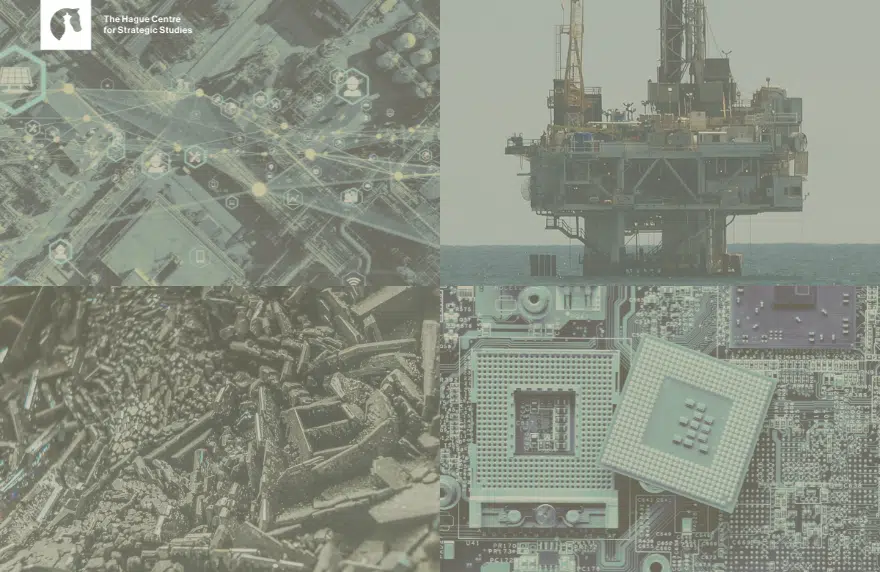Research
Gas supply security stands at the forefront of global energy concerns, particularly for Europe and Asia, as explored by Philip Geurts in his paper titled “Gas Supply Security in Europe and Asia Beyond 2030.” Geurts highlights the challenges posed by the inflexibility of gas supplies due to long lead times for production projects, exacerbated by the limited versatility of gas exports, whether in the form of liquefied natural gas (LNG) or through pipelines. The paper underscores the difficulties in replacing gas in the short term, while acknowledging that demand reduction strategies, such as transitioning to renewable energy sources and alternative fuels like coal or oil, can be implemented within a relatively brief period.
The paper stresses the importance of long-term demand curtailment as an integral aspect of minimising risks to gas supply security. While Europe’s accelerated adoption of renewable energy is expected to decrease its reliance on gas, Asia’s growing economic development is likely to drive increased demand in the region. Geurts points out the persistent dependence on gas imports for both Europe and Asia, with Europe experiencing a decline in production, particularly as the Netherlands shuts down its Groningen gas field. Meanwhile, Asian production growth is anticipated to be outpaced by surging consumption.
Looking ahead, the paper anticipates a concentration of LNG supplies in major players such as the US and Qatar, raising concerns about global LNG market dynamics. Geurts suggests that policymakers in Europe and Asia should prioritize demand reduction strategies to mitigate supply security risks in the 2030s. The example of South Korea and Japan, which have successfully reduced gas dependency through nuclear facility initiatives, accelerated renewable energy deployment, and energy efficiency maximization, serves as a compelling case study for other nations facing similar challenges.
Author: Philip Geurts, Oil Analyst at BloombergNEF
This paper is part of the Europe in the Indo-Pacific Hub (EIPH) Guest Author Series: Access or Absence in an era of geopolitical competition: insights on critical resources, global value chains, and maritime security. Edited by Paul van Hooft, Benedetta Girardi and Alisa Hoenig.
The research for and production of this report was made possible by a financial contribution from the Taipei Representative Office in the Netherlands to the Hague Centre for Strategic Studies. The conclusions and recommendations presented in this report are the result of independent research. Responsibility for the content rests with the authors and the authors alone.
Bloomberg disclaimer:
The BloombergNEF (“BNEF”), service/information is derived from selected public sources. Bloomberg Finance L.P. and its affiliates, in providing the service/information, believe that the information it uses comes from reliable sources, but do not guarantee the accuracy or completeness of this information, which is subject to change without notice, and nothing in this document shall be construed as such a guarantee. The statements in this service/document reflect the current judgment of the authors of the relevant articles or features, and do not necessarily reflect the opinion of Bloomberg Finance L.P., Bloomberg L.P. or any of their affiliates (“Bloomberg”). Bloomberg disclaims any liability arising from use of this document, its contents and/or this service. Nothing herein shall constitute or be construed as an offering of financial instruments or as investment advice or recommendations by Bloomberg of an investment or other strategy (e.g., whether or not to “buy”, “sell”, or “hold” an investment). The information available through this service is not based on consideration of a subscriber’s individual circumstances and should not be considered as information sufficient upon which to base an investment decision. You should determine on your own whether you agree with the content. This service should not be construed as tax or accounting advice or as a service designed to facilitate any subscriber’s compliance with its tax, accounting or other legal obligations. Employees involved in this service may hold positions in the companies mentioned in the services/information.
The data included in these materials are for illustrative purposes only. The BLOOMBERG TERMINAL service and Bloomberg data products (the “Services”) are owned and distributed by Bloomberg Finance L.P. (“BFLP”) except (i) in Argentina, Australia and certain jurisdictions in the Pacific islands, Bermuda, China, India, Japan, Korea and New Zealand, where Bloomberg L.P. and its subsidiaries (“BLP”) distribute these products, and (ii) in Singapore and the jurisdictions serviced by Bloomberg’s Singapore office, where a subsidiary of BFLP distributes these products. BLP provides BFLP and its subsidiaries with global marketing and operational support and service. Certain features, functions, products and services are available only to sophisticated investors and only where permitted. BFLP, BLP and their affiliates do not guarantee the accuracy of prices or other information in the Services. Nothing in the Services shall constitute or be construed as an offering of financial instruments by BFLP, BLP or their affiliates, or as investment advice or recommendations by BFLP, BLP or their affiliates of an investment strategy or whether or not to “buy”, “sell” or “hold” an investment. Information available via the Services should not be considered as information sufficient upon which to base an investment decision. The following are trademarks and service marks of BFLP, a Delaware limited partnership, or its subsidiaries: BLOOMBERG, BLOOMBERG ANYWHERE, BLOOMBERG MARKETS, BLOOMBERG NEWS, BLOOMBERG PROFESSIONAL, BLOOMBERG TERMINAL and BLOOMBERG.COM. Absence of any trademark or service mark from this list does not waive Bloomberg’s intellectual property rights in that name, mark or logo. All rights reserved. © 2023 Bloomberg.





